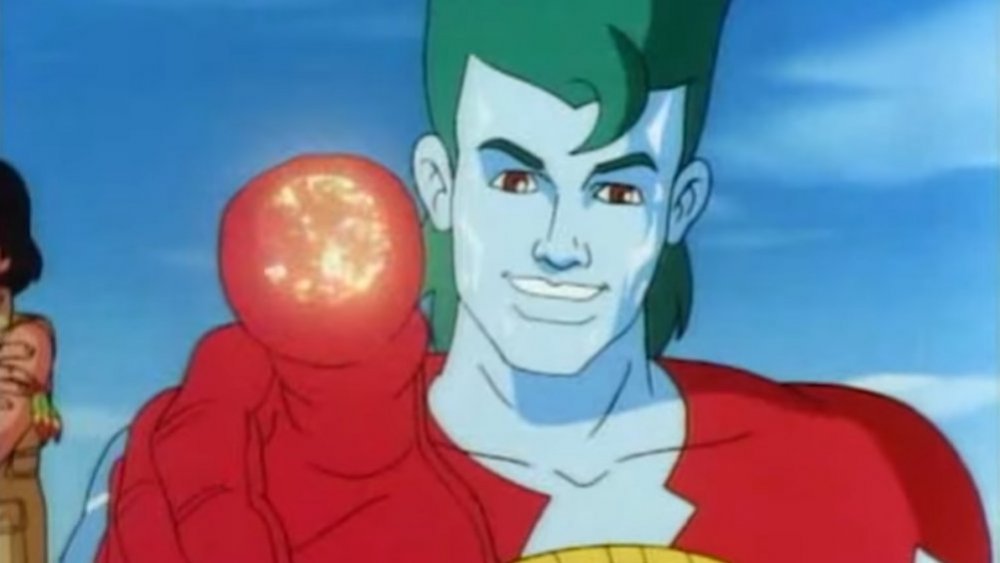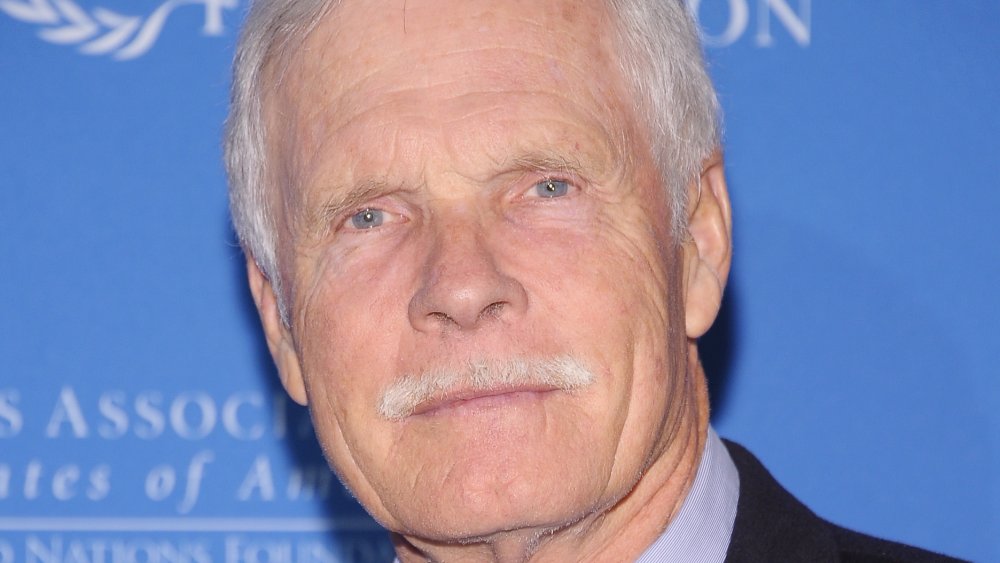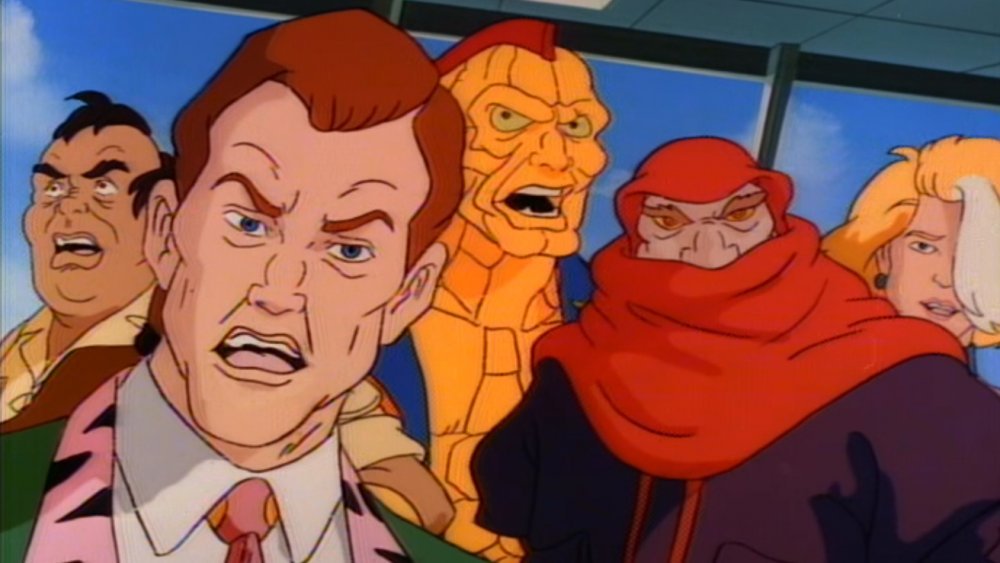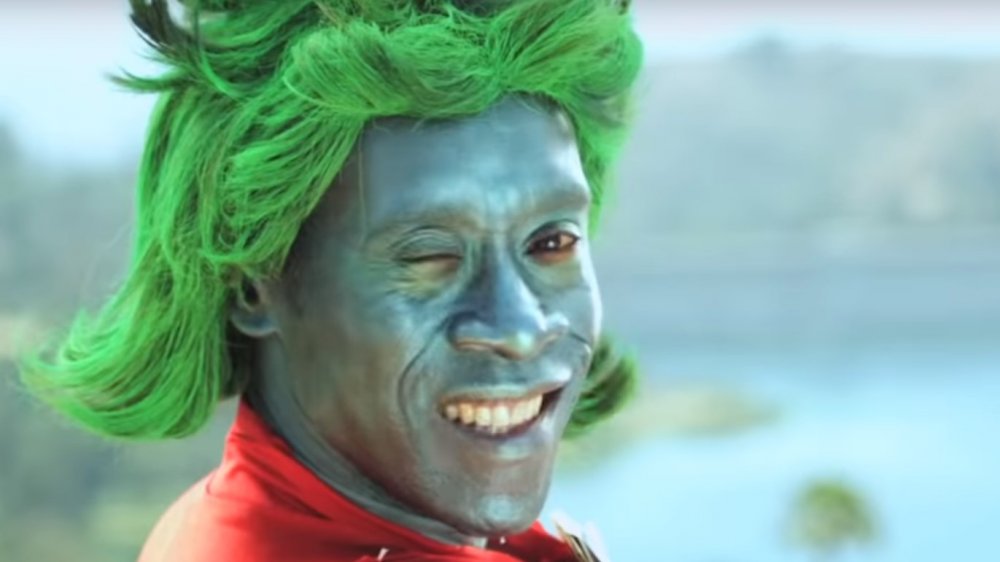The Bizarre History Of Captain Planet
Captain Planet flew onto the boxy, cathode-ray television screens of bright-eyed baby Millennials on September 15, 1990, thanks to the combined powers of fundamental elements like fire, heart, and the financial backing of one of the most powerful media moguls in American history. With the support of an all-star voice cast and a technicolor, kid-friendly aesthetic, Captain Planet and the Planeteers ran in two iterations for six years and a total of 113 episodes, encouraging young people to take an active role in environmentalism.
Three decades later, it's an unfortunate fact that pollution has not, by the reckoning of most climate scientists, been brought down to zero, but the legacy of Captain Planet lives on, beating in the hearts of a generation of ecologists and informing the wardrobes of dickie/briefs/go-go boot fashionistas. But where did he come from? And where is he now? Most importantly, in an age of bleak, sexed-up Archie reboots and Star Trek shows where people say potty words, why haven't we seen a Captain Planet revamp where Gaia goes on an amphetamine bender and the Heart kid invents a morally objectionable dating app?
Ted Turner came up with Captain Planet
In an interview with The Guardian, Captain Planet co-creator Barbara Pyle states that the whole thing started in 1980. The "Global 2000 Report to the President," a sustainability study commissioned by President Jimmy Carter, had just been released. It projected a world 20 years in the future plagued by man-made environmental catastrophes. Media magnate and philanthropist Ted Turner was having none of it. It was a time for bold action.
Pyle recalls, "Ted called me into his office and said, 'Captain Planet.'" When she asked what Captain Planet was, "He said, 'That's your problem,'" then presumably went back to dipping The Magnificent Ambersons in PAAS egg dye.
With the heavy lifting of coming up with the words "Captain" and "Planet" out of the way, Turner handed the project over to Pyle, who'd worked as a photojournalist up to that point, stating that he'd rather teach an environmentalist learn to make TV than teach a television producer to care about the planet. She constructed the show around pop culture archetypes while subverting expectations. The hero — while appearing to be your standard, run-of-the-mill comic book protagonist — was powerless on his own, and he required the cooperation of a multicultural band of optimists in order to get anything done. He was, by every metaphorical metric, the United Nations.
The show was packed with celebrities
Pyle also claims that the program walked the conservation walk on top of talking the talk, with all of the officially licensed toys being composed of recycled plastic and paper. The use of characters' likenesses on single-use plastic was also prohibited, which was a pretty forward thinking move considering that, 30 years later, it took a turtle with a straw up its nose for anyone else to pay attention to that sort of thing.
Lending credence to the program's dedication to its message was a top-shelf cast of actors. Tom Cruise was the original pick for Captain Planet, although he left after six episodes, and David Coburn re-recorded those segments. Whoopi Goldberg voiced Gaia, the New Age Zordon to the Planeteers' Power Rangers. Ed Asner, Jeff Goldblum, Meg Ryan, Martin Sheen, James Coburn, and Sting all contributed their voices to the Captain's rogues gallery, portraying subtle foils with names like Looten Plunder and Verminous Skumm.
As production continued, the show was revamped in 1993 as The New Adventures of Captain Planet and the Planeteers. Much of the original cast left, leaving a vacuum to be filled by classic voice actors like Frank Welker and Maurice LaMarche. By the final season in 1996, the show had reached the logical conclusion point for any high-minded television program, as it had a closing credits rap performed by Fred Schneider of the B-52s. It was time to go into that good night.
Captain Planet and the World of Tomorrow
Since then, multiple attempts have been made to take Captain Planet from the world of dusty VHS tapes and into the 21st century, with Leonardo DiCaprio's production company last seen scurrying off with the series' rights in 2016, hoping to create a big screen adaptation of the beloved kids' show, according to The Hollywood Reporter. The closest we've gotten so far was that Funny or Die series where Don Cheadle made us all go fetal in terror.
But like any real hero, the good Captain continues to inspire even in his absence. A cartoon of a blue guy with a mullet made of grass may be the hero we deserve, but people capable of creating real change? They're the ones we need right now. Since 1991, the Captain Planet Foundation has worked to provide education and funding for young people around the world through grants and programs like Project Learning Garden and Project Hero.



